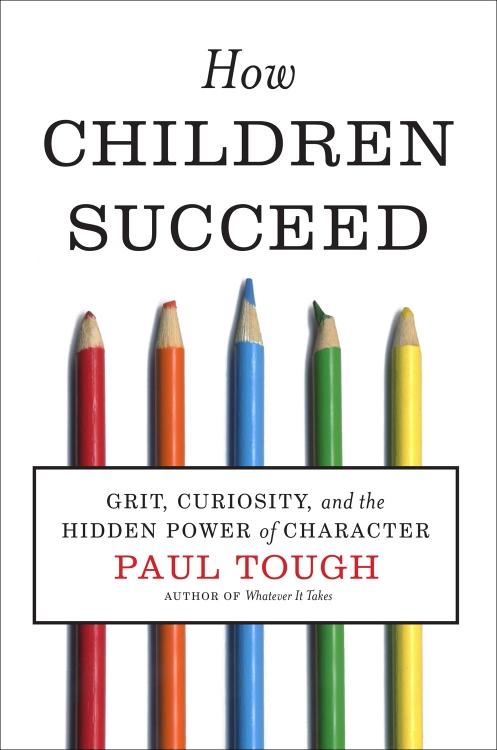
Section Branding
Header Content
An Interview with Paul Tough: The Hidden Power of OUR Character
Primary Content

I was recently invited by Paul Tough’s publisher (Houghton Mifflin Harcourt) to interview him about his new book “How Children Succeed: Grit, Curiosity and the Hidden Power of Character”. In our hour on the phone, Paul shared some of the background of the work he’d undertaken to write the book – collaborating with researchers and educators across the country to uncover the new insights that seem to be pointing to the personal qualities that matter most in student success. Qualities like “perseverance, curiosity, conscientiousness, optimism and self-control.”
In his book, Paul writes that “…the character strengths that matter so much to young people’s success are not innate; they don’t appear in us magically, as a result of good luck or good genes. They are rooted in brain chemistry and they are molded, in measurable and predictable ways, by the environment in which children grow up.“ He writes about how the success he observed in students measured in the research resulted from influences throughout the community and the clear message that “…the rest of us – society as a whole – can do an enormous amount to influence their development in children.” He gives examples of children who have persevered to become young adults (like Kewauna Lerma) deciding to succeed despite tough socio-economic and stressful situations - -because of the people in their lives influencing their every step.
So, I asked Paul what we should with this information. Do you have action steps for teachers, for example, as an outcome?” He paused – then reflected on the fact that this research was just beginning to give us answers – and that there was really no real specific thing he felt comfortable stating as “the thing to do.”
He writes, though, of action steps being taken now by parents placing their children in programs that focus on grit, self-control, character development that apparently seems to matter. From the early childhood program called Tools of the Mind (http://www.toolsofthemind.org/extendedcampus/toolsofthemind/) to an innovative (teacher-led) college persistence program working to make college graduation possible for all students. (http://www.onegoalgraduation.org/ ). He mentions chess as a tool for learning self-control – but the researcher instinct in him felt it premature to jump to conclusions of specifics – for what teachers can do now to help build on this knowledge and put it into action in their classrooms now.
At The Ignite Show, we like actionable take-aways for us all to do NOW to make a difference for the better in students’ lives. So I pushed Paul a bit and he then got personal and shared the take away for him and what he planned to do even more intentionally with his young son.
A newfound friend and high ranking educator “teacher leader” discussed this interview with me over a glass of wine recently – and thought a great next step for us all was to do what Paul actually did – make it personal, which she reminded me was central to the “responsive classroom” techniques recently reported in Education Week in the article titled “Research Links 'Responsive' Teaching to Academic Gains” By Jaclyn Zubrzycki. http://www.edweek.org/ew/articles/2012/09/13/04responsive.h32.html?tkn=QXVFU5%2FU54Vz%2F4Mv%2BHz0P6wyQpD1k7G2m4QP&cmp=clp-edweek&utm_source=fb&utm_medium=rss&utm_campaign=mrss
Reading this article, and learning about the personal actions as part of the Responsive Classroom might be the perfect action step after reading Paul Tough’s findings because it offers ways for us to behave with our children – either through school wide implementation of a full-out program (http://www.responsiveclassroom.org/) or as tips for simple ways to behave as teachers and parents that are reflective of what Paul spoke of in his book. “A lot of people believe that we just don’t have time for social skills, and yet the data continue to show it’s a great investment,” said Steven Elliott, the director of the Learning Sciences Institute at Arizona State University in Tempe, who has conducted previous studies of the Responsive Classroom approach.
So back to Paul, who shared that his personal action step to go home with a focused determination to inspire perseverance and self-control in his own son. That’s it isn’t it? That’s the point of his book for me. There is hidden power in OUR character and our responsibility to be authentic, share our hearts and minds with our children, be transparent enough to share our fears as well as the ways we work to overcome them is critical to helping our children succeed.
Thank you, Paul, for persevering in your own work and shouting the results loud for us all to hear!
I was recently





